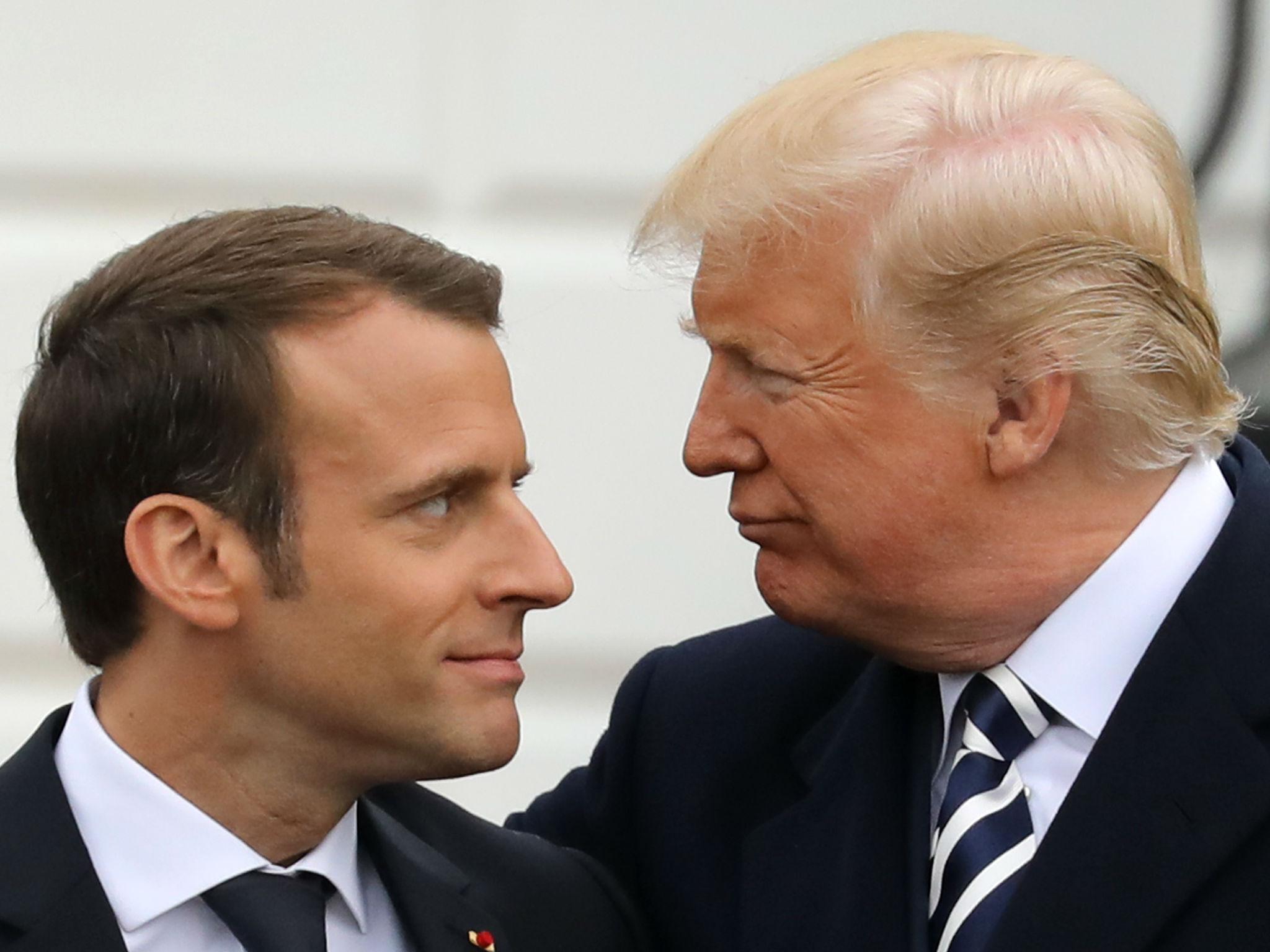As Donald Trump's attitude towards North Korea softens, relations with Iran remain as strained as ever
The important lesson Tehran may draw from recent trends is that the only reason why the president is suddenly compromising with North Korea is because it has managed to develop nuclear weaponry

Your support helps us to tell the story
From reproductive rights to climate change to Big Tech, The Independent is on the ground when the story is developing. Whether it's investigating the financials of Elon Musk's pro-Trump PAC or producing our latest documentary, 'The A Word', which shines a light on the American women fighting for reproductive rights, we know how important it is to parse out the facts from the messaging.
At such a critical moment in US history, we need reporters on the ground. Your donation allows us to keep sending journalists to speak to both sides of the story.
The Independent is trusted by Americans across the entire political spectrum. And unlike many other quality news outlets, we choose not to lock Americans out of our reporting and analysis with paywalls. We believe quality journalism should be available to everyone, paid for by those who can afford it.
Your support makes all the difference.Not so very long ago, Iran and North Korea were the two poles of what George W Bush famously labelled “the axis of evil” – aggressive regional powers intent on acquiring nuclear weapons and representing a clear threat to American security interests.
Not so today. North Korea’s Kim Jong-un, once dubbed by President Trump as “little rocket man” and “sick puppy”, is to meet as an equal with the American leader, who he once disparaged as a “dotard”.
Nowadays Mr Trump doesn’t threaten Pyongyang with “fire and fury”, but praises his counterpart as an “honourable” man. As ever, with two such monumental and unpredictable egos, everything could fall apart at any point, but for now the Korean peninsula is living through an unusually sunny phase in its history.
Contrast that, then, with Iran. America remains the “Great Satan”, just as it has been since the great revolution four decades ago that swept the ayatollahs to power. President Hassan Rouhani has chucked the unusual insult of “tradesman” at Mr Trump, adding, by way of explanation, that Mr Trump is not qualified to comment on international affairs or matters of law. While strictly, and demonstrably, true, and provoked by Mr Trump’s belligerent talk, it is now what diplomats would term “unhelpful” in restraining Mr Trump from tearing up the troubled Joint Comprehensive Plan of Action (JCPOA), the international accord designed to constrain Iran’s nuclear ambitions.
Mr Trump has long campaigned for it to be scrapped. As with so many of his despised predecessor’s policies, Mr Trump sees it as simply another line in Barack Obama’s legacy to be wiped from the palimpsest. His new designated secretary of state, John Bolton, is a notorious hawk on Iran, and America now threatens to plunge relations between the West and Iran into a mini Cold War, if anything pushing Tehran ever closer to Moscow. This is not a hopeful development.
There were some glimmers of pragmatism visible during President Trump’s joint press conference with Emmanuel Macron. The French president, and indeed the whole world, will hope that Mr Trump’s mention of “flexibility” in life heralds some softening in his approach to the JCPOA. Mr Macron, craftily, has proposed a “new” treaty, but preserving the essentials of the 2015 original – thus saving Mr Trump’s face while also saving the substantive elements of the original treaty. If his ploy succeeds then it will represent a substantial diplomatic coup for the French; and the world will owe Mr Macron a debt of gratitude. If not, it will prove beyond doubt that even the most faithful and pragmatic of allies cannot influence Mr Trump, and that the Middle East can only look forward to more violence.
Iran has so far responded with a sullen rejection of any talk of change, but it is at least possible that Mr Macron’s stratagem will succeed, and that President Trump will not, come the deadline on 12 May, withdraw from the treaty. That would both signal a renewed stance of hostility from Washington – which would come as no great surprise – and push relations into a new, more unstable phase. After decisive joint Western action in Syria against government forces backed by Iran and Russia, it is perfectly possible that the Americans might choose to take further action there and in other proxy wars in Yemen, Iraq and, possibly, Lebanon.
The important lesson Tehran may draw from recent trends is that it pays to get your hands on a nuke. For it is plain that the only reason why Donald Trump is suddenly compromising with North Korea is because North Korea has managed to develop nuclear weaponry that directly threatens the United States. If the Iranians possessed nuclear-tipped missiles, would the Americans be quite as willing to try to push them around, they will wonder.
The central point about the JCPOA is that, flawed as it is, it slows Iran’s nuclear progress; if Iran follows America’s example in renouncing it then there will be nothing, except American brute power, possibly backed by or exercised through Israel, that will deter Iran from speeding up its programme once again. Even if the original axis of evil is not reformed, there will be many other evil regimes around the world that would be happy to join the “tribute band” version. They will, like Tehran and Pyongyang before them, conclude that even a bombastic figure such as Donald Trump will pause and think again when trying to bully a smaller power. They will be right, too.
Join our commenting forum
Join thought-provoking conversations, follow other Independent readers and see their replies
Comments